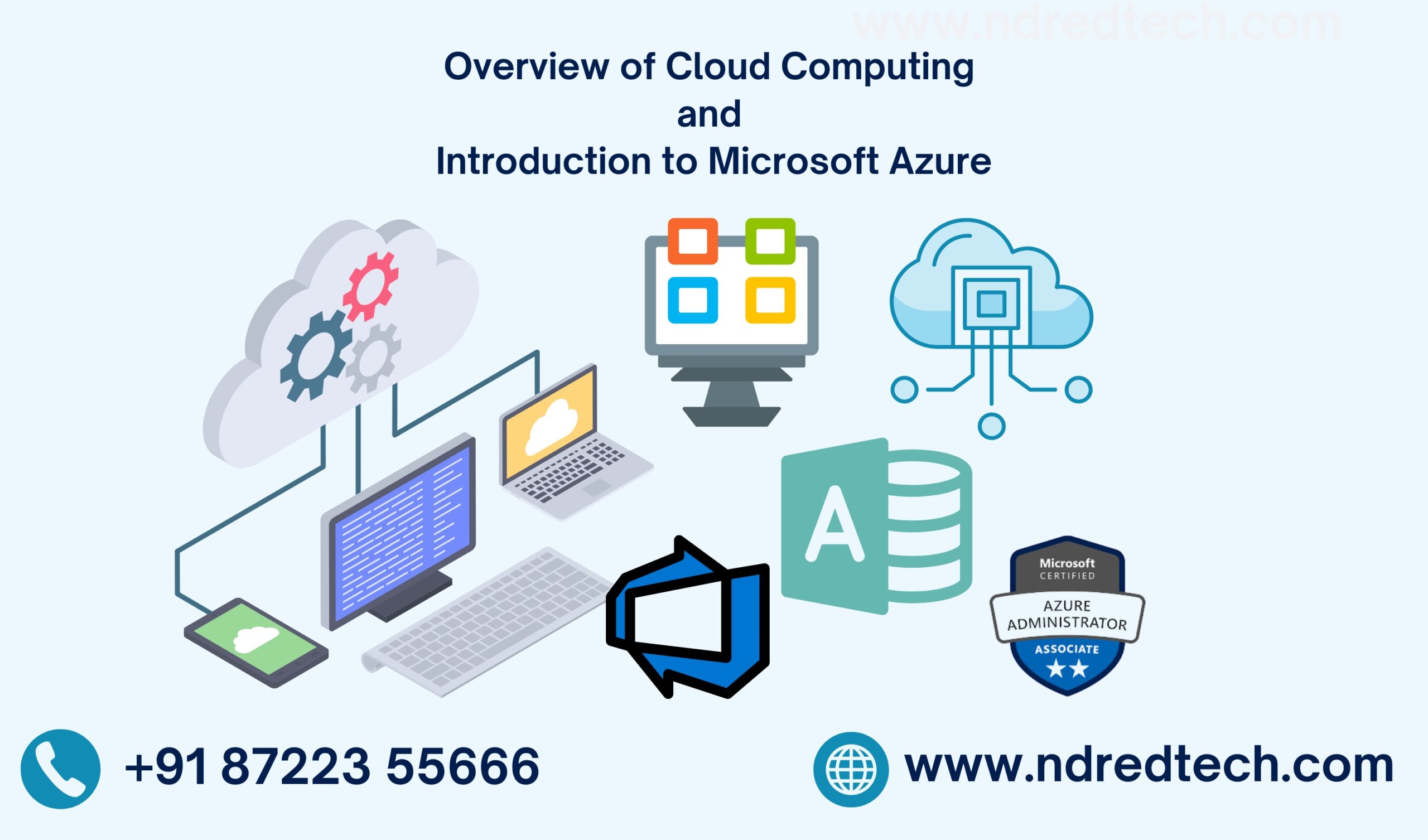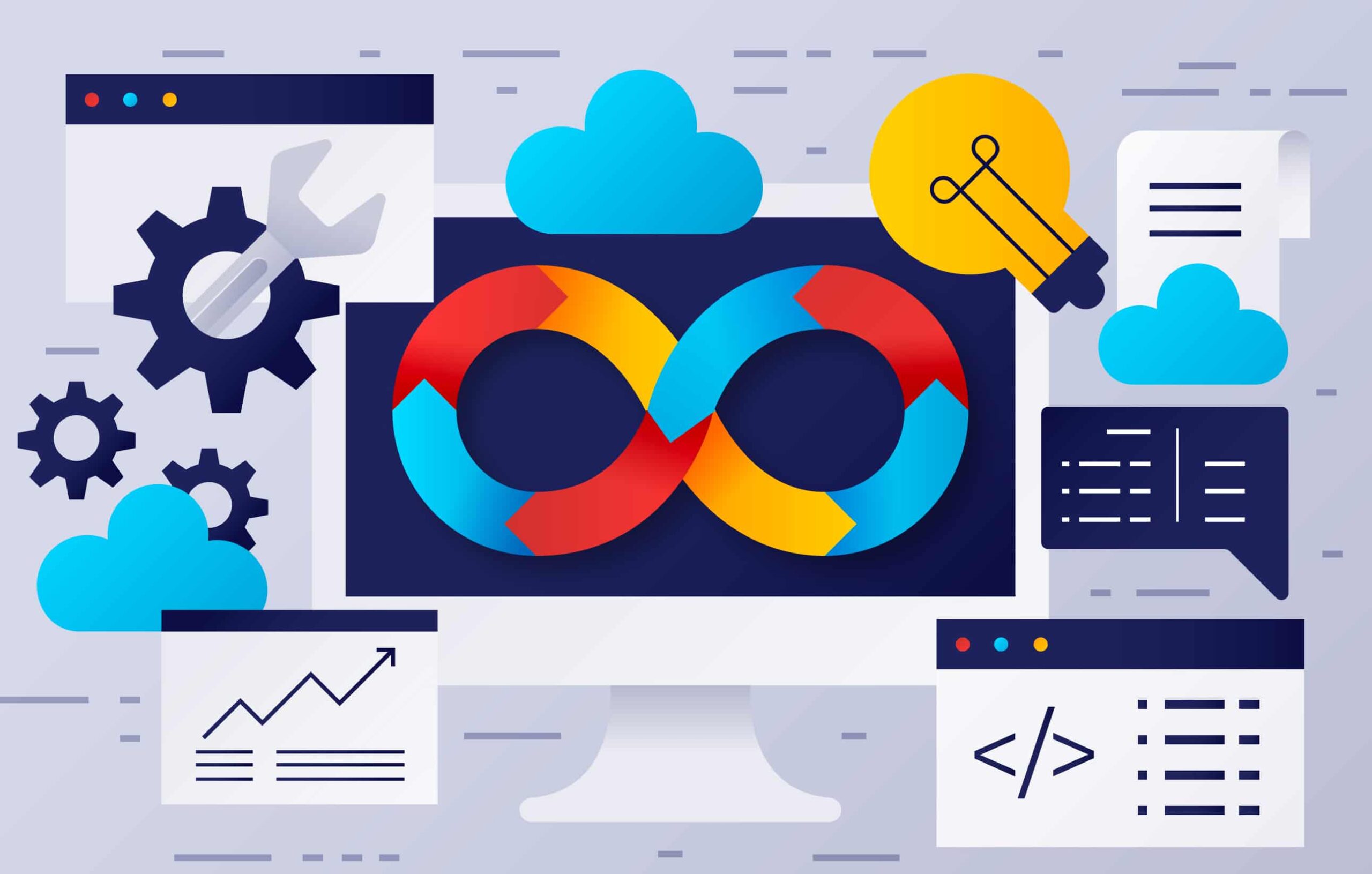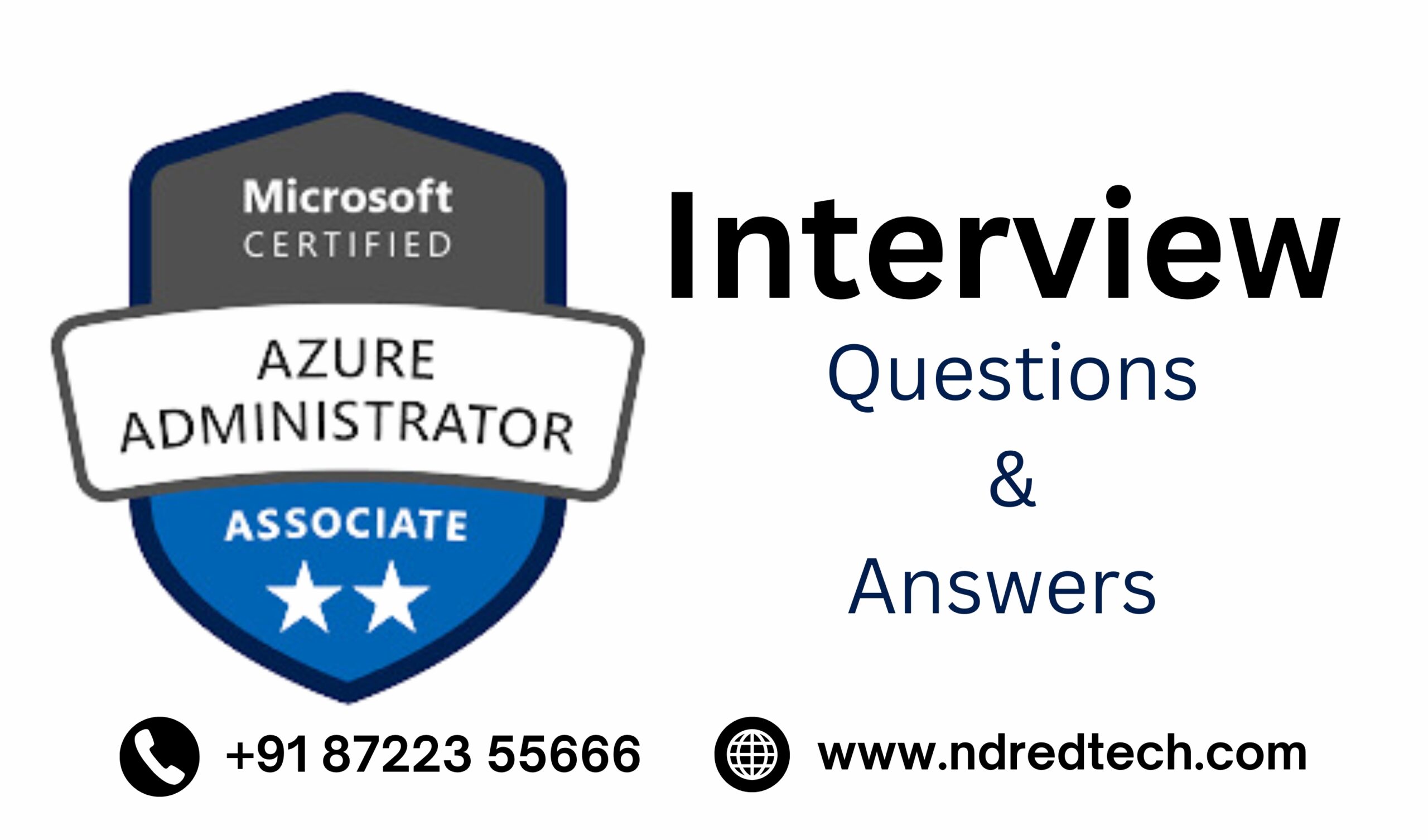Overview of Cloud Computing
Cloud computing is a technology that enables individuals and businesses to access computing resources such as servers, storage, databases, networking, software, and analytics over the internet. Instead of maintaining physical hardware and infrastructure, users can leverage cloud services provided by companies like Microsoft Azure, Amazon Web Services (AWS), and Google Cloud Platform (GCP) on a pay-as-you-go basis.
Key Characteristics of Cloud Computing
- On-Demand Self-Service – Users can provision resources like servers and storage without human intervention.
- Broad Network Access – Services are accessible over the internet from anywhere.
- Resource Pooling – Cloud providers allocate resources dynamically across multiple customers.
- Scalability & Elasticity – Resources can scale up or down automatically based on demand.
- Pay-as-You-Go Pricing – Users only pay for the resources they consume.
Types of Cloud Computing Services
Cloud computing services are categorized into three main models:
1.Infrastructure as a Service (IaaS)
- Provides virtualized computing resources over the internet.
- Examples: Azure Virtual Machines, AWS EC2, Google Compute Engine.
2.Platform as a Service (PaaS)
- Offers a development environment without managing underlying infrastructure.
- Examples: Azure App Services, AWS Elastic Beanstalk, Google App Engine.
3.Software as a Service (SaaS)
- Delivers software applications over the internet on a subscription basis.
- Examples: Microsoft 365, Google Workspace, Salesforce.
Types of Cloud Deployments
- Public Cloud – Services are provided by third-party providers (Azure, AWS, GCP).
- Private Cloud – Cloud infrastructure is dedicated to a single organization.
- Hybrid Cloud – A combination of public and private clouds.
- Multi-Cloud – Usage of multiple cloud providers for different services.
Benefits of Cloud Computing
- Cost-Effective – No upfront hardware costs.
- High Availability & Reliability – Redundant systems ensure minimal downtime.
- Security & Compliance – Cloud providers implement advanced security measures.
- Global Reach – Services are available from anywhere with an internet connection.
- Automatic Updates – Software and infrastructure updates are managed by the provider.
Popular Cloud Computing Providers
- Microsoft Azure – Offers a wide range of cloud services with deep integration with Microsoft products.
- Amazon Web Services (AWS) – The largest cloud provider with extensive global infrastructure.
- Google Cloud Platform (GCP) – Known for AI, machine learning, and data analytics services.
- IBM Cloud – Focuses on hybrid cloud solutions and AI-powered cloud services.
- Oracle Cloud – Popular for enterprise database and SaaS applications.
Introduction to Microsoft Azure
Microsoft Azure is a cloud computing platform and service provided by Microsoft, offering a wide range of cloud services, including computing, storage, networking, databases, AI, and security. It enables businesses, developers, and IT professionals to build, deploy, and manage applications and infrastructure efficiently across Microsoft’s global data centers.
What is Microsoft Azure?
Azure is a flexible and scalable cloud platform that provides solutions for:
- Infrastructure as a Service (IaaS) – Virtual machines, networking, and storage.
- Platform as a Service (PaaS) – App hosting, serverless computing, and container services.
- Software as a Service (SaaS) – Cloud-based software applications like Microsoft 365.
Azure supports multiple programming languages, frameworks, and operating systems, making it a preferred choice for enterprises, startups, and developers.
Key Features of Microsoft Azure
- Global Reach – Over 60+ data center regions worldwide, ensuring low latency and high availability.
- Security & Compliance – Azure follows ISO, HIPAA, GDPR, and other industry standards for security.
- Scalability & Performance – Automatic scaling of resources to meet demand.
- Hybrid Cloud Support – Seamless integration with on-premises infrastructure using Azure Arc.
- AI & Machine Learning – Advanced AI capabilities with Azure Cognitive Services.
- Cost Efficiency – Pay-as-you-go pricing with reserved instances for long-term savings.
- Integration with Microsoft Ecosystem – Deep integration with Windows, Active Directory, SQL Server, and Office 365.
Core Services of Microsoft Azure
1.Compute Services
- Azure Virtual Machines (VMs) – Run Windows or Linux VMs in the cloud.
- Azure Kubernetes Service (AKS) – Manage containerized applications.
- Azure Functions – Serverless computing for event-driven applications
2.Storage Services
- Azure Blob Storage – Store unstructured data such as images, videos, and backups.
- Azure Files – Cloud-based file sharing with SMB protocol.
- Azure Disk Storage – Persistent storage for VMs.
3.Networking Services
- Azure Virtual Network (VNet) – Securely connect cloud resources.
- Azure Load Balancer – Distribute traffic for high availability.
- Azure ExpressRoute – Private, dedicated connections between on-premises and Azure.
4.Security & Identity Services
- Azure Active Directory (Azure AD) – Identity and access management.
- Azure Key Vault – Securely store secrets, keys, and certificates.
- Azure Security Center – Monitor and enhance security posture
5.Database & Analytics Services
- Azure SQL Database – Fully managed relational database service.
- Azure Cosmos DB – NoSQL database for globally distributed applications.
- Azure Synapse Analytics – Big data and analytics platform.
6.AI & Machine Learning
- Azure Cognitive Services – Pre-built AI models for vision, speech, and language.
- Azure Machine Learning – Build, train, and deploy ML models at scale.
Benefits of Using Microsoft Azure
- Enterprise-Grade Security – Microsoft invests over $1 billion annually in security.
- Hybrid Cloud Capabilities – Seamlessly connect on-premises and cloud environments.
- High Availability – Azure guarantees 99.99% uptime for many services.
- Cost-Effective – Flexible pricing models with pay-as-you-go and reserved instances.
- AI & IoT Innovations – Azure is a leader in AI, IoT, and quantum computing.



